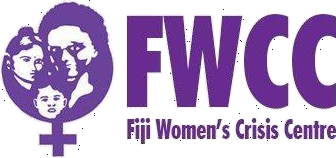Male advocates commit to become agents of change
8 Dec, 2021
TWENTY five male advocates who were part of a dialogue on engaging men to end violence against women and girls have committed themselves to be agents of change in their communities.
The Fiji Women’s Crisis Centre concluded the one-day dialogue with male advocates from the Western Division at Lautoka’s Tanoa Waterfront Hotel on Monday.
At the conclusion of the dialogue, the advocates made commitments to be agents of change and work towards ending violence against women and girls in their respective communities.
Made up of current and retired police officers, former school teachers, village headmen, community leaders and representatives from the District Council of Social Services (DCOSS), the advocates made commitments to change themselves and their perception of women and honour their roles in society.
“When we leave this room and return to our communities, we will ensure that we get our house in order first before calling for change in the communities,” the male advocates highlighted.
“In our own homes, we need to bring up our boys in a manner that they learn to respect their own sisters, mothers and other women in the community.
“We should teach our sons to respect women and girls and live with high moral standards.
“We need to be champions of violence against women and girls in our communities and ensure every perpetrator is taken to task. We should not sweep complaints from women under the carpet, but report the matter to relevant authorities.”
The male advocates reached a resolution that they want to be a part of the work to end gender-based violence and use human rights based approaches to create awareness in their homes, communities, villages and churches.
Male Advocate and retired police officer Sainivalati Makutu of Nadi said the dialogue was a refresher on what advocates should do and to get back on track with the latest developments.
“As a retired police officer, I want to know what I can do in this work because we don’t want the women in our lives to be one of the statistics,” Mr Makutu said.
Senior Welfare Officer and Male Advocate Clement Dari who has been working in this space for 19 years said advocates needed to change their own behavior and mindsets before making changes in the
communities.
“To change mindsets is a hard climb and I have been climbing that hill for 19 years – it’s not easy. Once we change ourselves and mindsets, we can make changes. The rippling effect of change is very transformative,” Mr Dari said.
The advocates also made personal commitments to respect their wives, work with them and include them in all decision making processes, always listen and ask, share responsibilities for household chores and tasks, and have more family time.
As part of their commitment to the community, the men also agreed to create more awareness in the areas they served, ensure decision making in villages are inclusive and include women at all levels, give women more opportunities, support women in the roles they play in their communities and during meetings remind church leaders and village elders to include women in decision making and not sideline them to make tea and prepare meals.
“When we go and teach in our communities, we should ensure that we tell our boys and elders to give respect to women.
“Women and girls are important part of our society and have equal rights as men.”
The dialogue also allowed the advocates, majority being community leaders, to talk about the day-today challenges they faced in their communities on issues related to violence and sexual offences.
A number issues were raised by the Male Advocates about lack of police action on rape cases.
The advocates also agreed to monitor and evaluate their work in the communities with the help of FWCC.
FWCC coordinator Shamima Ali said the dialogue allowed the male advocates to discuss issues relating to violence against women and girls and sexual offences at large and they had a lot to take back with them after the one-day event.
“The male advocates want to work on themselves first, starting from their own homes,” Ms Ali said.
“They all made a commitment that they want to do the work and be a part of the work that we do in preventing violence against women and girls and promote women’s human rights.”
Ms Ali also acknowledged the challenges in terms of lack of police action and is intending to meet the Commissioner of Police to discuss issues of concern.
FWCC will conduct a comprehensive six-day Male Advocacy training for 30 men, including the 25 who participated in Monday’s training in February, next year.
Ends…
